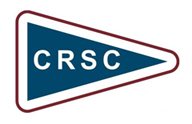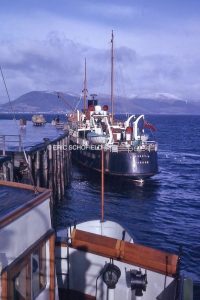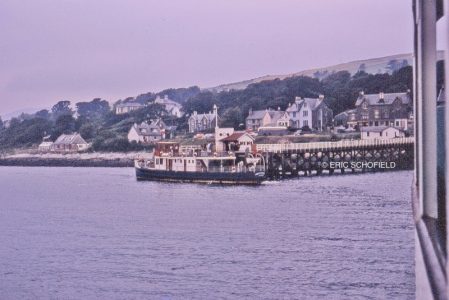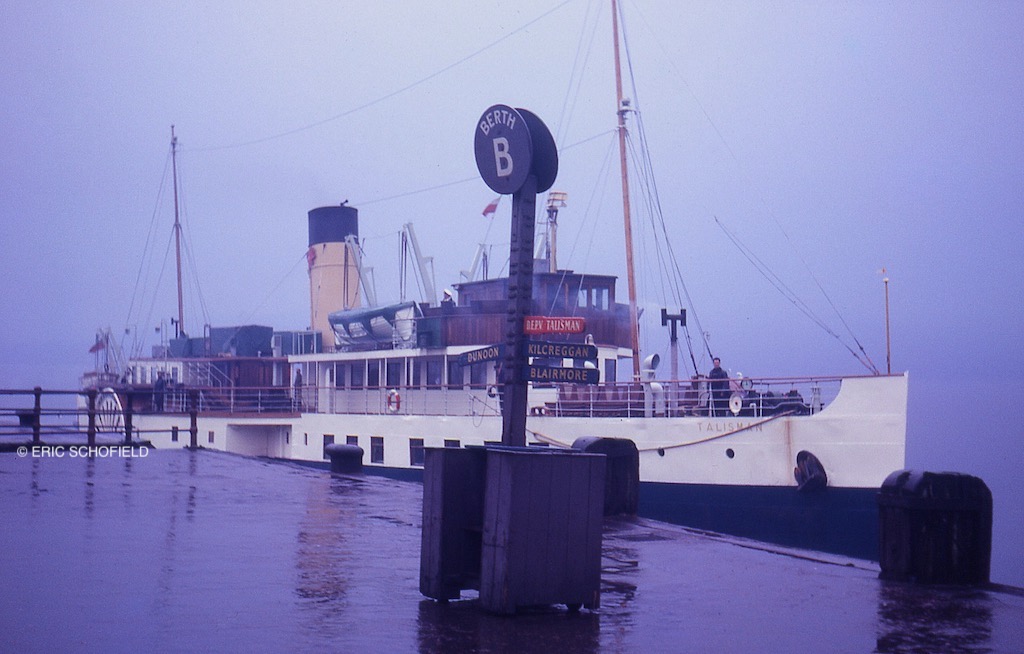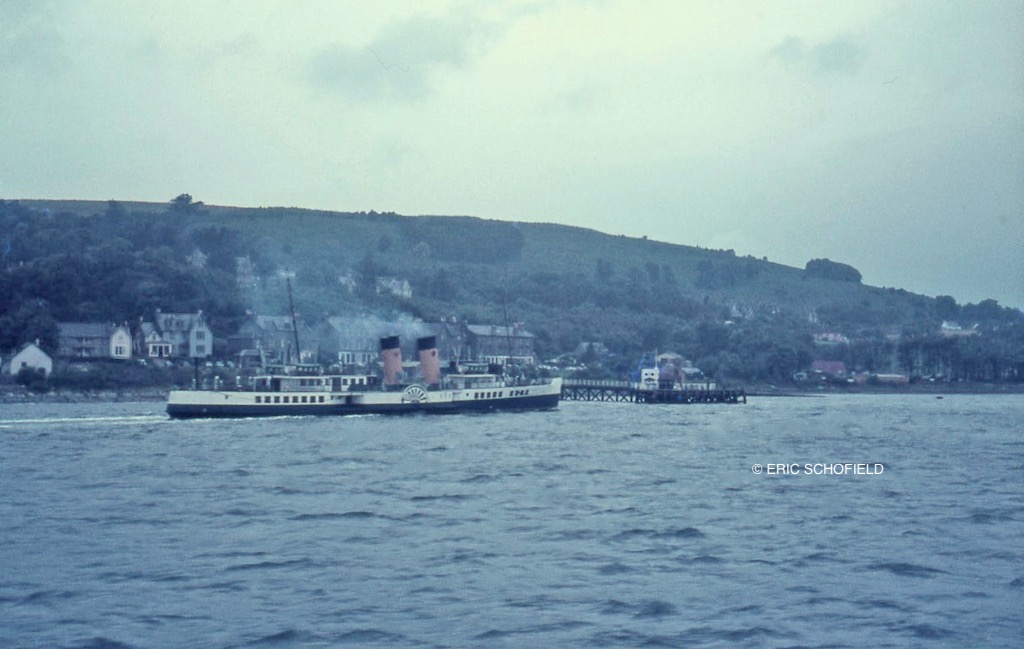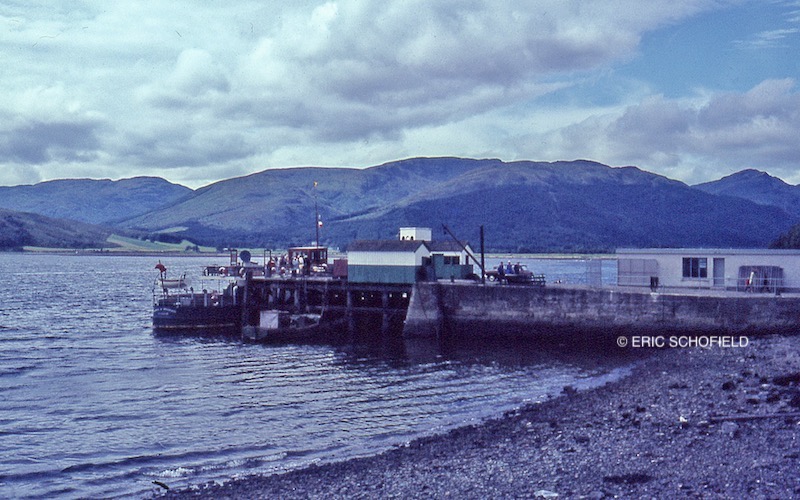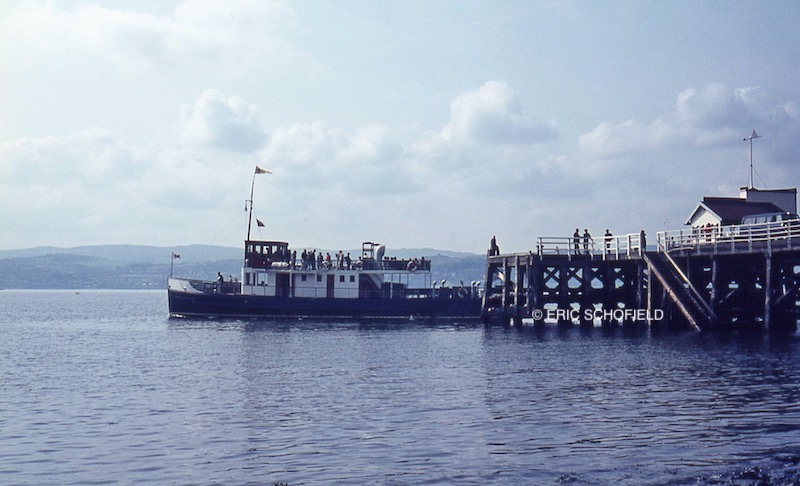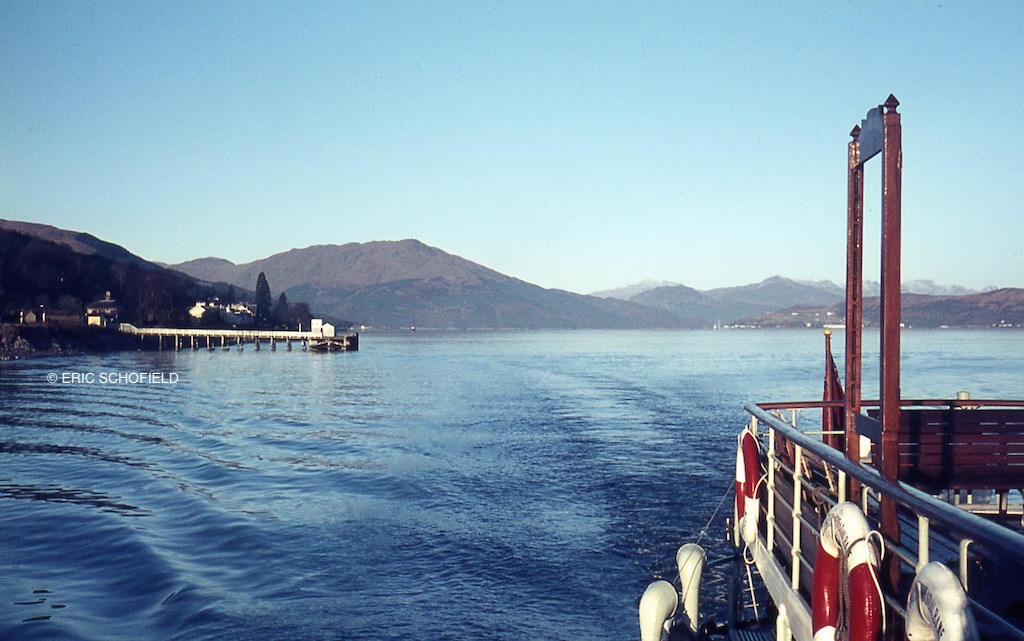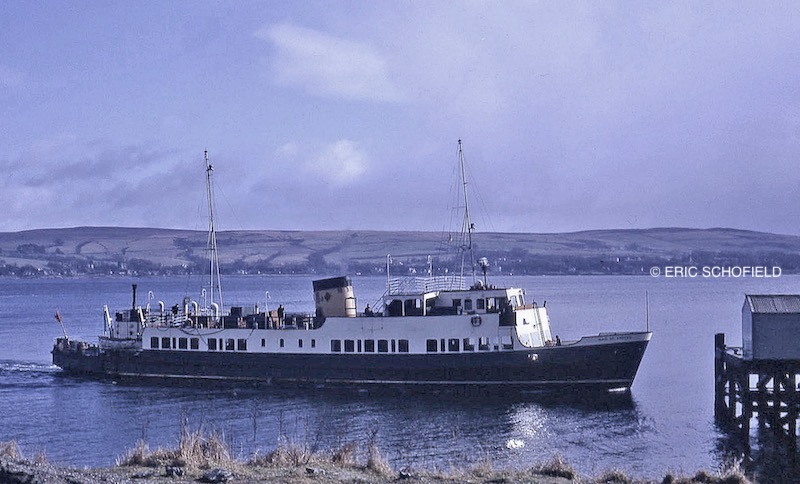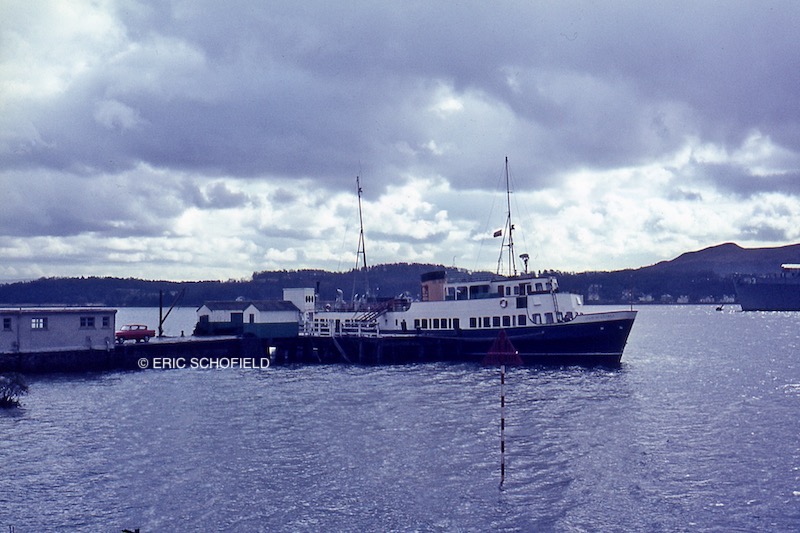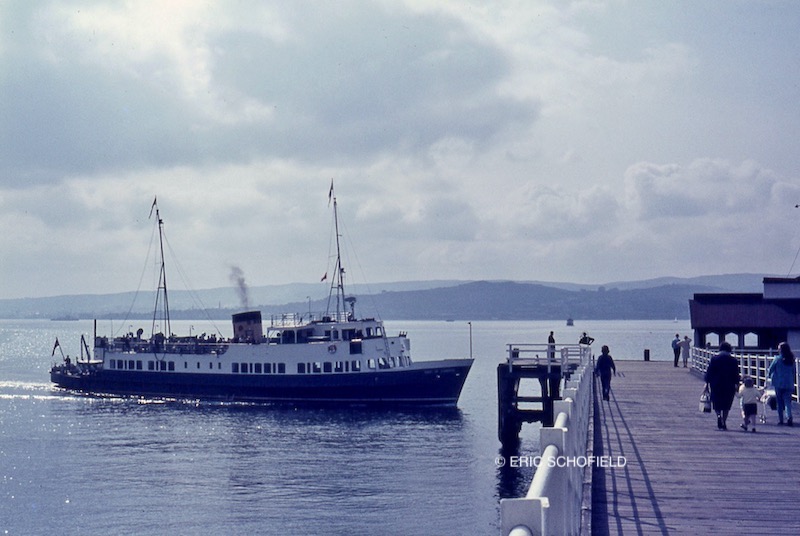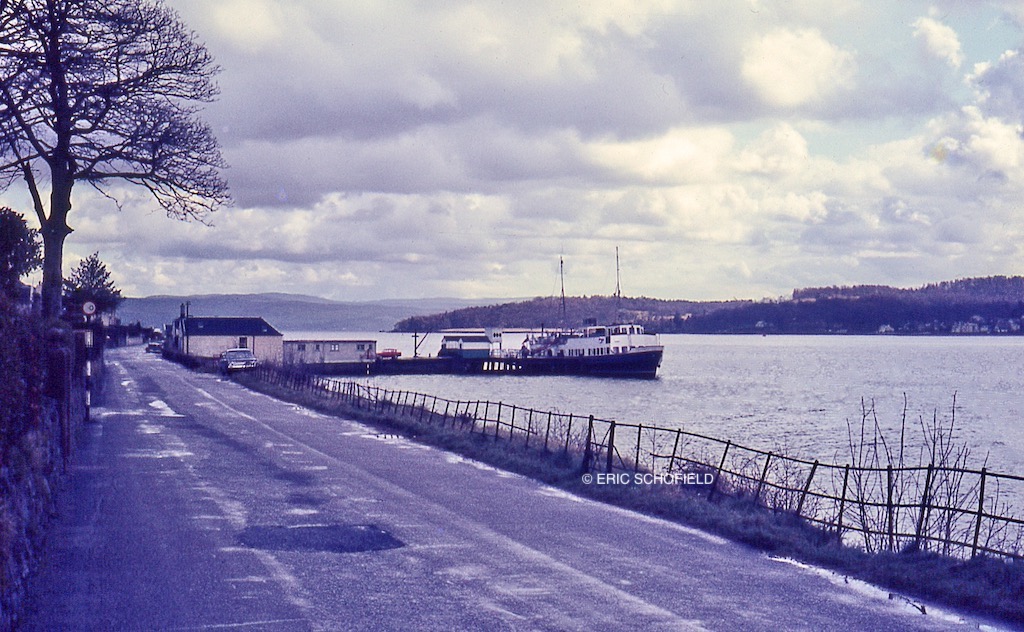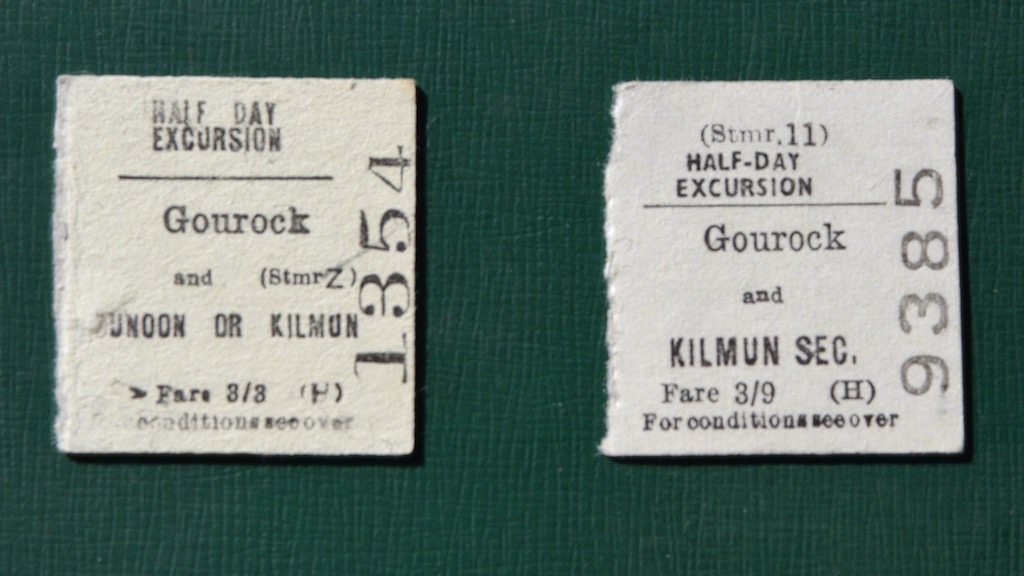
Holy Loch jaunts — one with Talisman (Stmr Z), the other with Maid of Ashton (Stmr 11). The young Eric Schofield caught these trips in good time: the Caledonian Steam Packet Company axed its Holy Loch service in the spring of 1971
Eric Schofield takes a trip down memory lane to the Holy Loch, where in the mid-to-late 1960s he had pleasurable encounters with Talisman, Countess of Breadalbane and a variety of ‘Maids’.

Eric Schofield: ‘when I had limited time, these short excursions, with their frequent pier calls and constant variations, really suited me’
One of the memorable features of Clyde cruising in past decades was how ‘ferry’ services, whilst addressing lifeline requirements of an area’s resident population, could provide tourists and day trippers with interesting short excursions, even in winter.
This was especially true for the Upper Firth, where services were characterised by frequent pier calls and constant variation in passenger complements. A good example was the Holy Loch: jaunts there suited me nicely when I had limited time, ruling out long distance cruising. I availed myself of a good number of such trips before closure of the CSP service to Kilcreggan, Blairmore and Kilmun in the spring of 1971.
The return section of the ‘Half-Day Excursion’ ticket (above left), dated/timed on the reverse as ‘3 May 65 4pm’ and issued aboard ‘Stmr Z’, refers to a passage between Gourock and Dunoon or Kilmun, with fare of 3 shillings and 3 pence. Of those seven facts depicted on the ticket only four are correct, namely ‘Half-Day Excursion’, ‘Gourock’, ‘Steamer Z’ and ‘3 May 65’. The excursion I undertook did indeed start from Gourock, but the destination was Kilcreggan and Blairmore, from where I returned direct to Gourock, the ticket being purchased after the ‘5.00pm’ departure and the fare was in fact ‘4 shillings’.
‘ Z’ (as in ‘Stmr Z’) was the designated letter given to Talisman, and I think it safe to say that it was the springtime relief rostering of the paddler on the Holy Loch run that lay behind the other minor differences. Talisman was normally deployed between Wemyss Bay, Largs and Millport, the only exceptions being an annual spell of winter/spring reliefs in the Upper Firth and occasional summer stand-ins for one of the Craigendoran-based vessels.
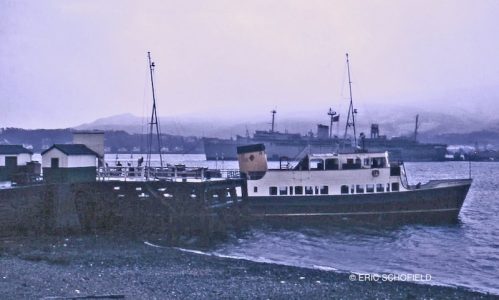
Maid of Ashton leaves Kilmun on 11 March 1966 (with USS Hunley in the background). Eric rejoined her at Blairmore
In other words, her ticket stock for the various Upper Firth piers was rarely in use, so it is no surprise that the ticket issued for my 1965 Holy Loch trip bore a fare that was last applicable there back in 1961. Such discrepancies between ticket face-values and the fares actually charged were not an unheard-of occurrence, due to frequent (usually annual) fare increases.
The roster called for a 1610 departure from Craigendoran via Kilcreggan to Gourock, followed by a 15-minute turnaround and a 1700 departure to Kilcreggan and Blairmore – barely sufficient time, even when traffic was not heavy, for the Purser to be concerned with updating the timer to 5pm on his ticket issuing machine. Maybe some of the Club members who served as Assistant Pursers back in those days might be able to shed light on just how compliant was the use of that procedure.
The other ticket (top of page, right) is dated 31 July 1965. On its reverse the time is displayed upside down relative to the date, and the print is very indistinct. This was issued by the normal Holy Loch vessel of that time, Maid of Ashton, designated Steamer 11, and covered the 1810 evening run from Gourock via Kilcreggan and Blairmore to Kilmun, with return to Kilgreggan and then Gourock.
As the epicentre of these short trips, Gourock offered ample opportunity to see and photograph the more important members of the CSP fleet, of which a good example is Duchess of Hamilton, photographed (further down the page) from Maid of Ashton on 19 June 1965.
Among my other notable jaunts around the Upper Firth/Holy Loch area at that time, Friday 11 March 1966 wielded a feast of photo opportunities, with weather alternating between blizzard-like snow falls and sparklingly clear sunny spells — but all the time accompanied by an icy blast.
The main attraction was Cunard’s original Queen Elizabeth, lying at the Tail of the Bank following a major overhaul in Inchgreen Drydock. Having joined Maid of Ashton at Craigendoran at 0845 to get the best chance of a close-up view of the Cunarder, we berthed at Gourock behind MacBraynes’ Lochnevis, which was loading a trolley of mailbags for disbursement at her respective ‘Royal Route’ pier calls.
I continued aboard the ‘Ashton’ to Kilmun, past USS Hunley in the Holy Loch, then walked to Blairmore to rejoin the ‘Maid’ on her mid-morning Gourock/Kilcreggan/Blairmore return run. Walking up from Gourock to the James Watt Dock gave ample opportunities to picture the river’s many other shipping movements that day.
Tuesday 21 June found Talisman on the Arrochar excursion from Craigendoran, standing in for the broken down Waverley, and on the way back down Loch Long I disembarked at Blairmore, changing onto Maid of Ashton for a circuit calling in quick succession at Kilcreggan, Gourock, Kilcreggan, Blairmore, Kilcreggan and Gourock.
I then hopped across to Dunoon on Maid of Skelmorlie and back to Gourock on Duchess of Hamilton, before finishing the day by getting back onboard Talisman for her return to Craigendoran.
An overcast Saturday evening breather on 3 September 1966 on two ‘Maids’ (the ‘Ashton’ outwards via Kilcreggan to Blairmore, the ‘Cumbrae’ back later via Dunoon to Gourock) provided only one photo opportunity, Waverley arriving at Kilcreggan.
On Thursday 17 August 1967, having come down river on Queen Mary II, I sampled the so called ‘new Holy Loch steamer’ Countess of Breadalbane on the afternoon Gourock/Kilmun service. Later in September I spotted the ‘Breadalbane’ at Kilcreggan from onboard Maid of Ashton, which was operating the Garelochhead excursion.
In 1968 Holy Loch duties were shared by a number of vessels, my visits coinciding with Maid of Argyll (30 March), Countess of Breadlabane and Maid of Cumbrae (13 July) and culminating with a wonderful Christmas Day afternoon trip on the ‘Breadalbane’ to Kilmun. Once again I had time to walk to Blairmore to catch the vessel on her return sailing to Gourock.
As we moved into a new decade, despite much change elsewhere in the Clyde and West Highlands, the ‘Breadalbane’ continued to serve the Holy Loch piers while rumours of the route’s impending closure continued to circulate. In the Holy Loch, viewed from the ‘Breadalbane’ as she sailed into the Loch in March 1970 (see further down the page), that sense of change was also evident at the US submarine base: the depot ship USS Simon Lake had moved from its normal position relative to the Floating Dock, ready to hand over the station to USS Canopus.
Eric adds: It may be of interest to some to note the American submarine depot ships that were moored in the Holy Loch:
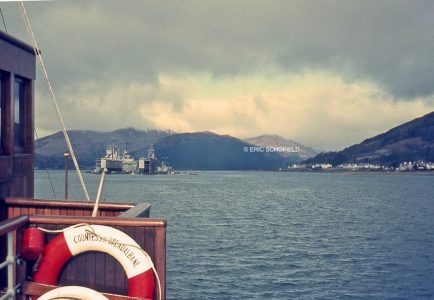
The floating dock USS Los Alamos forms the backdrop for this photo of the Holy Loch, taken from onboard Countess of Breadalbane on 30 March 1970
Proteus (AS19) March 1961 to January 1963
Hunley (AS31) January 1963 to August 1966
Simon Lake (AS33) August 1966 to May 1970
Canopus (AS34) May 1970 to November 1975
Holland (AS32) November 1975 to January 1982
Hunley (AS31) January 1982 to June 1987
Simon Lake (AS33) June 1987 to March 1992
The Floating Dock throughout the above period was Los Alamos (AFDB7).
All photographs on the CRSC website are subject to copyright law. Do not reproduce them on Facebook, Pinterest or any other public platform.
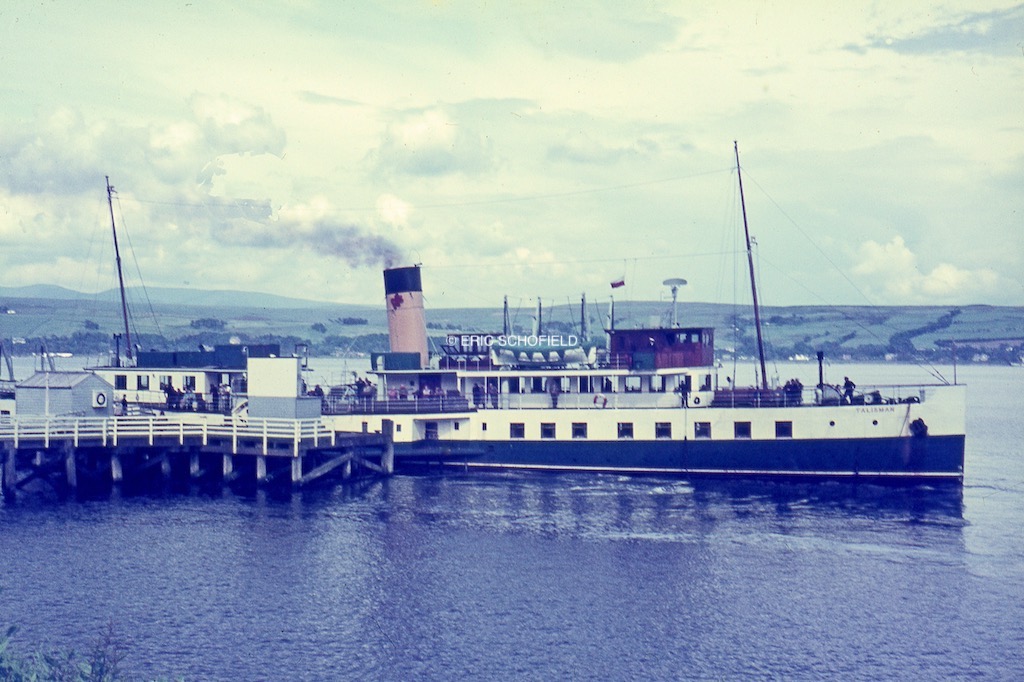
Talisman, usually seen on the Millport run, leaves Blairmore on 21 June 1966 on her return from the Arrochar excursion
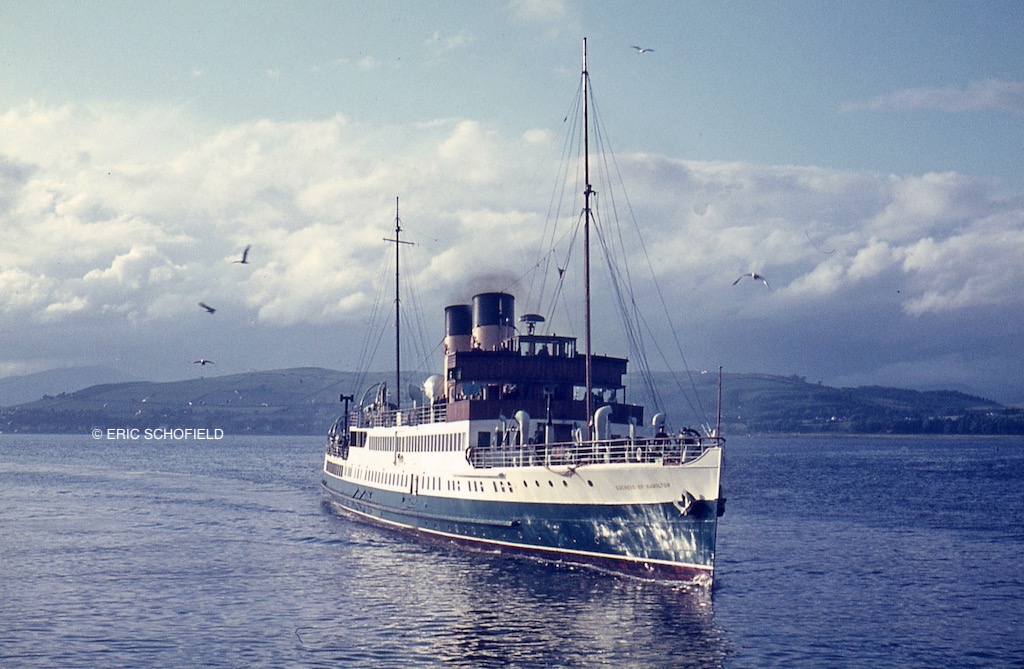
Eric’s magnificent portrait of Duchess of Hamilton arriving at Gourock on the evening of 19 June 1965
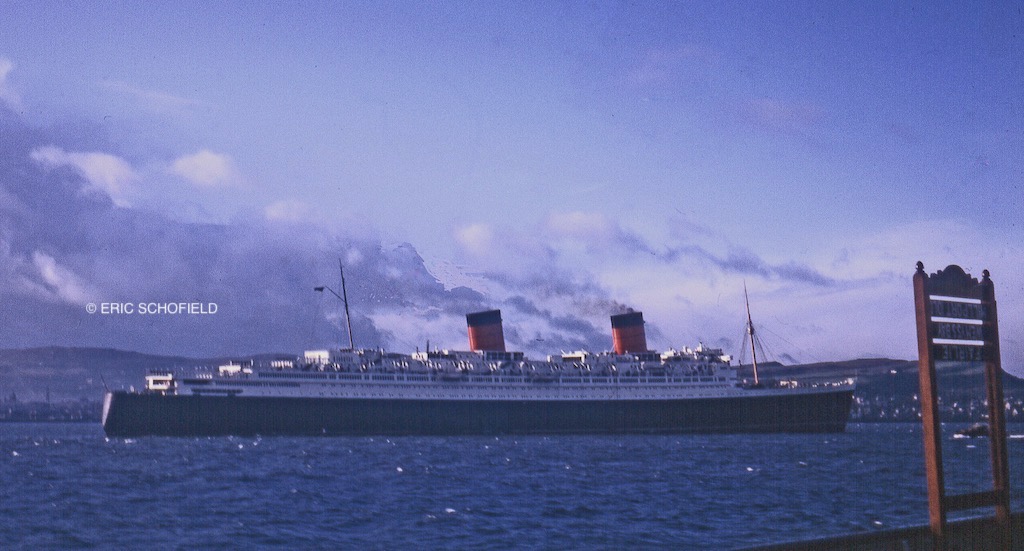
The Clydebank-built Queen Elizabeth, captured by Eric at the Tail of the Bank on 11 March 1968 while he was making the early morning crossing on Maid of Ashton from Craigendoran to Gourock
Published on 4 August 2020
